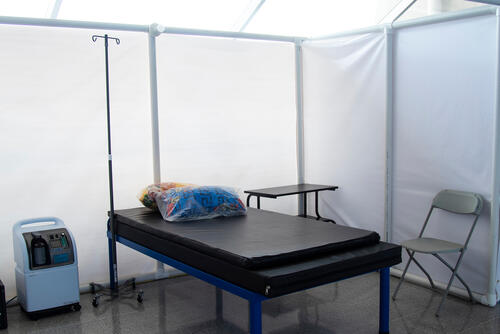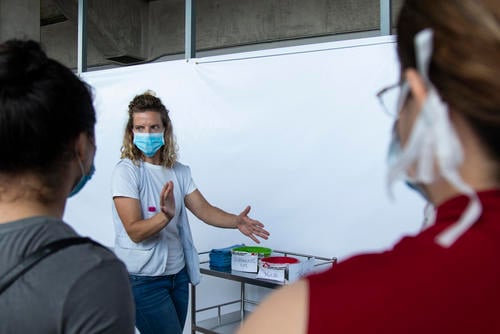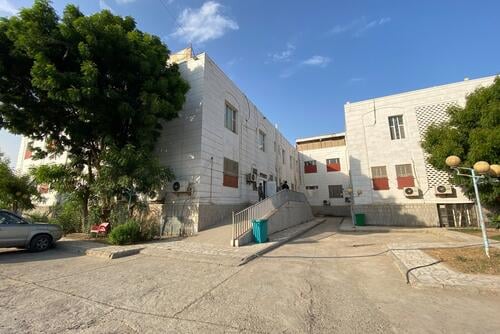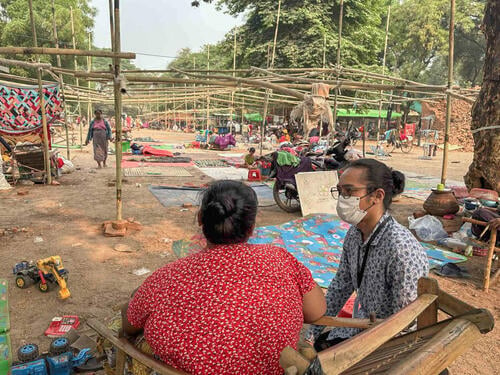As numbers of COVID-19 cases rise in Tegucigalpa, the capital of Honduras, a team from Médecins Sans Frontières (MSF) has started caring for patients with severe symptoms of the disease in an annex of the National Autonomous University of Honduras (UNAH). Working in coordination with Honduran health and emergency authorities, MSF teams aim to prevent the capital’s hospitals from becoming overcrowded.
In the hospital annex, which has been adapted into a specialist 20-bed coronavirus ward, the MSF medical team is caring for patients who need oxygen support. Patients are transferred there from local hospitals and from two other coronavirus wards set up within the university, where mild and asymptomatic patients are being cared for by staff from the Ministry of Health and the National Emergency Department. The MSF team is also providing patients and their families with psychological support over the telephone.
As of 11 June, a total of 7,360 COVID-19 cases have been officially confirmed in the country; 23 per cent of them in the Francisco Morazan department, where Tegucigalpa is located.

“We have worked in coordination with the university and the local health and emergency authorities to support the response to the COVID-19 emergency in Tegucigalpa,” says Jose Antonio Silva, MSF project coordinator. “We aim to provide patients with quality medical care and contribute to the objective of easing the burden on the health system.”
Our team consists of medical, nursing, hygiene and logistical staff, who have the personal protective equipment (PPE) they need to do their job safely, avoiding the risk of infection.
At the same time, we will continue our regular activities in Tegucigalpa, providing medical and psychological care to survivors of violence.
“While we are putting a lot of effort into caring for COVID-19 patients and easing pressure on the health system, we have not stopped our regular activities,” says Silva. “We will continue providing comprehensive medical care to survivors of sexual violence and victims of other types of violence.”
MSF has also set up a telephone helpline providing mental health support for violence survivors.






